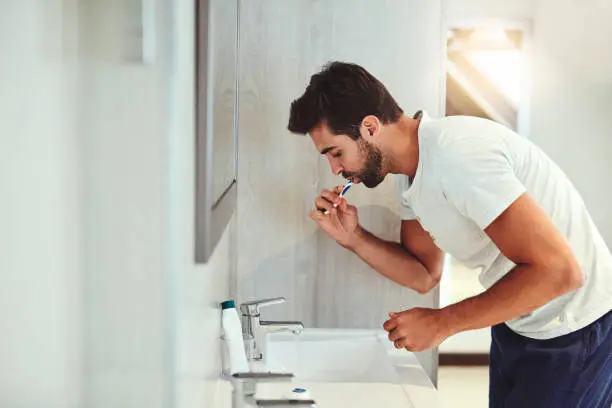Do you rinse your mouth after brushing?
Yes, most people do that.
What if we tell you if you rinse your mouth with a mouthwash or water, you are actually unwillingly doing some dental damage?
Yes…!
Spitting all the foamy substance out is totally recommended but rinsing your mouth after brushing as per dental experts removes all the fluoride in the toothpaste mixed for preventing the enamel and decaying of your teeth.
Fluoride is one of the vital substances in toothpaste, one of the most crucial substances for remineralization of the enamel, as well as helpful in developing teeth which also decreases the acidity level in the mouth, washed out of the mouth.
Well, we are sure this is shocking for you, and this is what we are taught to do, and have been doing for a long time.
For Appointments: Visit Our Paragon Dental Centre.
What is mouthwash?
When we had it mentioned before my friend didn’t get the meaning of mouthwash. He thought of it as face wash, because mouthwash after rinsing is considered one of the last rituals of brushing. And that’s true too, if you don’t mouthwash, the residual of the toothpaste still remains in your mouth, and seems unhygienic.
Mouthwash means, holding water in your mouth for some seconds, and spitting it out for removing all the substances or plaques in your mouth. After brushing it is done for removing all the residuals of the toothpaste after brushing.
In general, mouthwash enhances your oral hygiene regimen. It removes plaques and reduces the chances of cavity or gum diseases.
But after brushing it takes out fluoride in the toothpaste that is there to protect your teeth enamel from hot and cold substances and prevent it from decaying.
Argument On why shouldn’t rinse your mouth with water after brushing
Well, the simplest and the dominating argument dental experts present on why shouldn’t you rinse your mouth out with water is it removes all the fluoride in the toothpaste.
And same applies to those who rinse their mouth with a mouth washer. With a mouth washer actually, which is designed to remove all the plaques build up in your mouth, along with the bad breath. So, rinsing your mouth with a mouth washer too should be refrained from.
And when you don’t brush your teeth for at least 2 minutes- the minimum recommended time for brushing, and then wash your mouth with water or with a mouth washer, you are potentially removing all the remnant of the toothpaste that is there to act as a shield for your enamel and prevent your teeth from decaying.
If you just spit out the foamy substances, the excess toothpaste, and don’t rinse with water, the fluoride will get to work and protect your teeth and you will enjoy cleaner, healthier, and hygienic oral health.
The other side of the story
There is another side of the story, a flip of the coin. Many say, along with top dental and oral hygiene experts including Michaela Tozzi, DMD, that doing a quick rinse after brushing your teeth is totally Okay. One step ahead, it is a good idea to do so, as it removes the bacteria in the toothpaste after brushing.
He further adds, that rinsing for so long that there is no residue of the toothpaste in your mouth is fine, there is no need to rinse off using a mouthwash or even water. Water is more than fine, but if you are habited to use mouthwash right after brushing, use a non-alcoholic-based rinse.
Rinsing for 30-second after brushing is totally Okay, don’t go for the second round, or brush the teeth without toothpaste right after brushing so that even the tiniest of the residues removes from the mouth.
She adds that there is one exception to that, if you are brushing for therapeutic purposes like Fluoride sensitivity and enamel strength, things should be followed a bit differently here.
Brush, spit, and rinse as per usual. One step added here, apply the same toothpaste topically with your finger and spit, and don’t rinse here. Do the same if you are brushing or using toothpaste for calcium based or demineralized for weakened enamel.
What should you do?
We think the other side of the story too backs our claims ‘Don’t rinse your mouth after brushing with water or mouthwash. As per Michaela Tozzi’s findings and research, she mentioned that rinsing the mouth after brushing removes the fluoride chemical that acts as a shield against teeth enamel.
And the thing is particularly important if you are brushing for enamel or demineralization of your teeth. Applying toothpaste topically using a finger is actually the affirmation of our claims.
Rinsing after flossing
Rinsing after flossing is totally Okay, but it should not be followed after brushing. Yes, you can floss before brushing, there is no damage to your teeth.
If you floss right after brushing, you might have to switch the routine. Flossing is good for your gums and teeth health, it removes the plaque or food residues that a usual brush can’t reach up. And it is important to rinse after flossing, and if you floss after brushing following rinsing, it removes all the fluoride that you apply to your teeth in the form of brushing.

